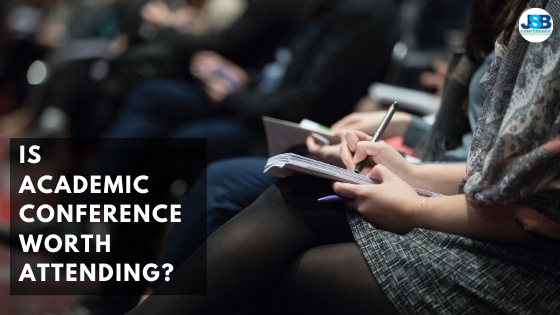Academics conferences bring together people sharing similar disciplines from all over the world under one roof. It is an opportunity to revamp existing knowledge for better future performance.
What is an academic conference?
Academic conferences are meetings where researchers come together to present and learn about the latest developments within their field. These conferences are the most focused ones. Academics conferences are not only for academics but also for the exchange of information among scientists.
These conferences are generally organized by a group of independent researchers or associations under the surveillance of scientific or technical committees. The academic conferences vary in shapes and sizes, from local meetups to global events with thousands of attendees. The upcoming International conference may be on single discipline discussing specialized topics whereas interdisciplinary conference brings in a variety of topics.
Type of sessions in an academic conference
They are many types of sessions at an academic conference. The typical ones include:
Keynote Session
The most attended session of the conference. Often presented by distinguished speakers, the session is intended to deliver the core message or most important disclosure of the conference.
Panel Session
This session generally involves several researchers discussing or debating on a single or related topic. The sessions may take various forms from panelist conveying prepared statements or providing answers to the questions.
Poster session
In the poster session, participants explain the physical posters that they have produced exhibiting their research. The poster is a combination of text, images, graphs, tables, etc.
Why attend an academic conference?
There is a significant rise in the number of academic conferences these days. But, the question arises that why to attend an academic conference? There are many reasons to consider:
- To present a paper
The main objective of an academic conference is to provide an opportunity for the participants to present their papers. The presenter has a chance to present their paper in front of co-workers from a similar field of study. The presentation of the paper helps the presenter to receive feedback that will help them to improve.
- Networking for future collaborations
The conference is an opportunity to build relationships and networks with fellow researchers and experts in similar fields. Attenders come from all around the world to demonstrate their thoughts and research on the latest advances. Connection with scientists and academics helps learn new things, share views and enrich your existing knowledge. This network can bring you a better prospect as you share similar objectives.
- To find out what’s new
In the fast-paced world, more and more information is revolving as well as evolving. It becomes vital to know what is new in your field of study. Because it is necessary to stay up-to-date to persist in an academic discipline. The academic conference is the major source that will keep you updated on new research or findings.
- Publication
The academic conference has greater chances to get your research published or indexed. There are higher chances that your abstract or paper gets published as conference proceedings. Selective pioneering papers may even get published in the top journals.
Attending academic conferences are a boost factor for growth in career. The conference is a chance to meet and collab with fellow workers, to learn about the latest advancements and understand the larger picture of your field.
